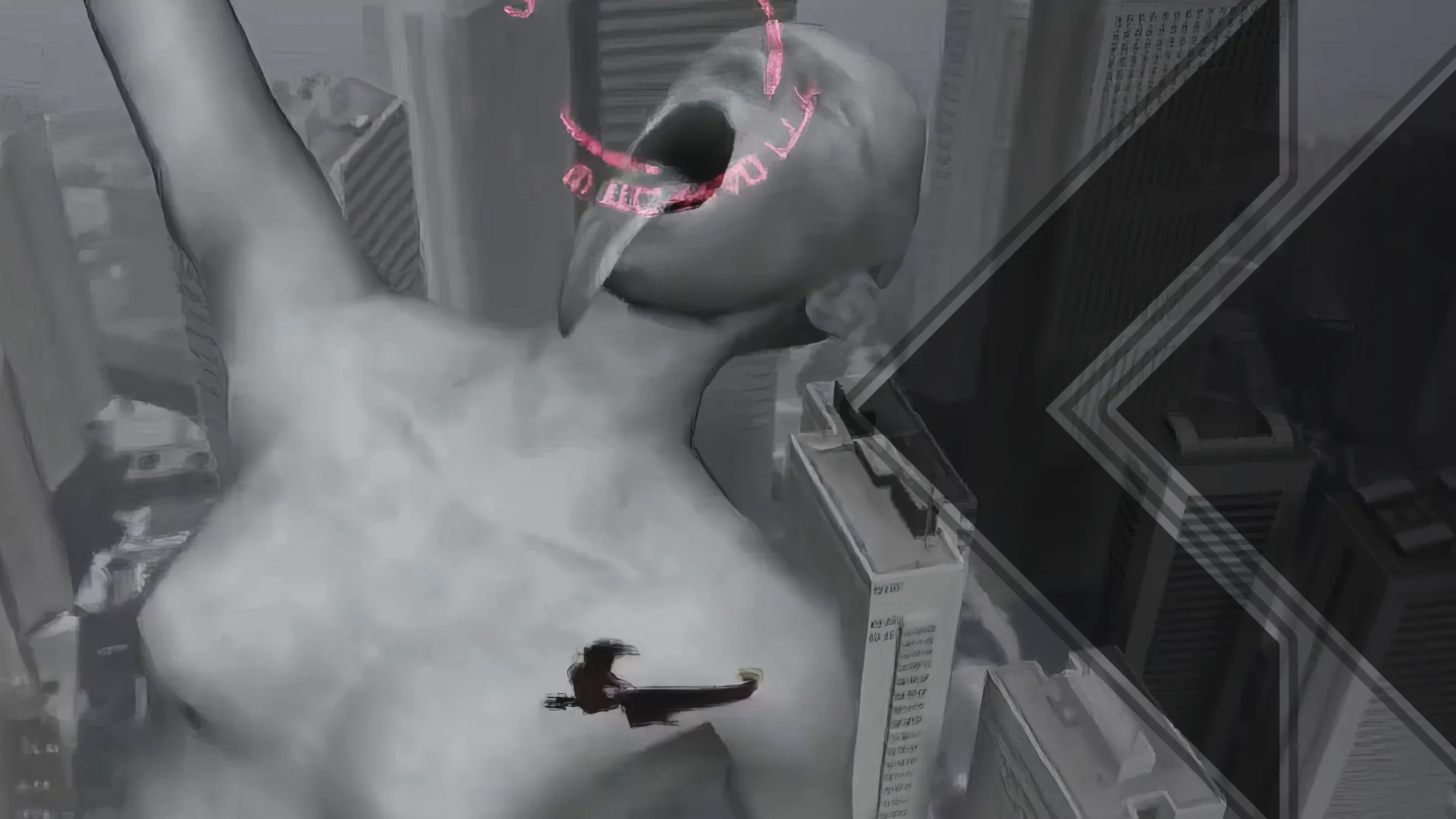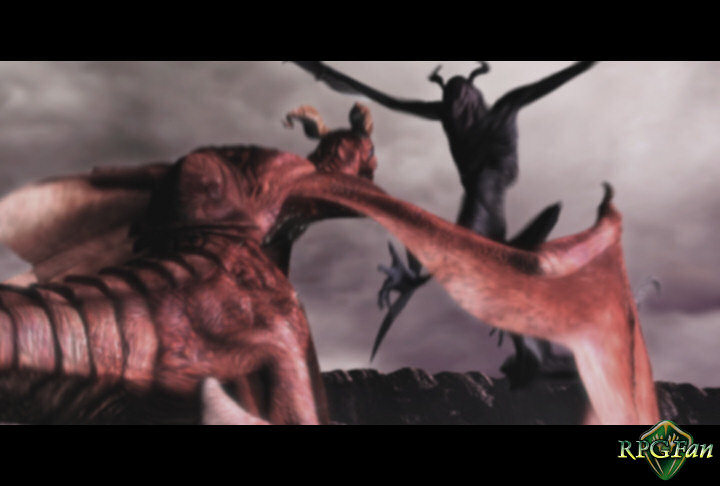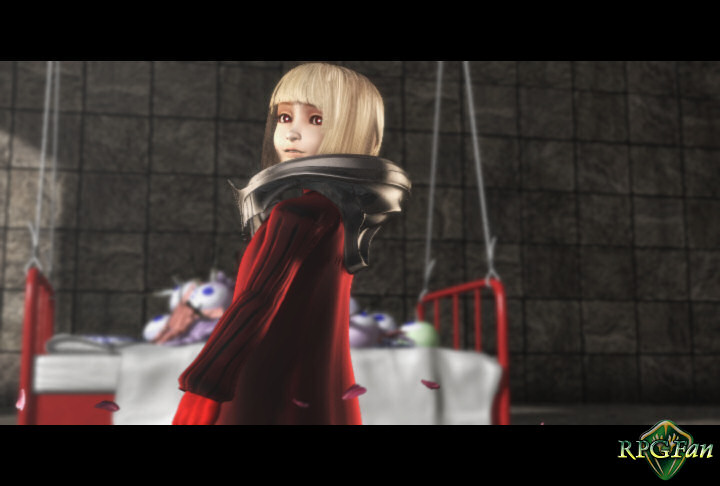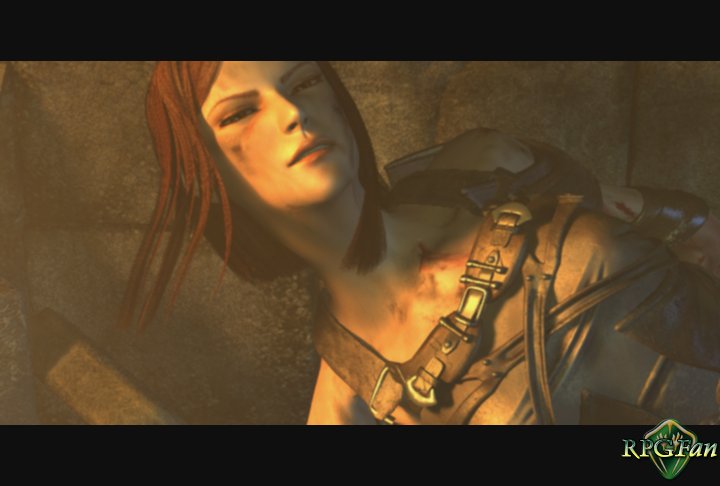Aleks Franiczek
I knew going into Drakengard that I was in for a ride. A pretty much singular ride fueled by an indulgently morbid tone, ambitious genre-crossing design, clever subversions of RPG tropes, an OST from hell, and heaps of jank.
What I didn’t expect was that I’d find this ride as enjoyable as I did. I enjoyed the relentless yet workmanlike mowing down of obscene amounts of enemies with different dangerous implements. I enjoyed the Ace Combat-like aerial missions, which have the best dragon gameplay the trilogy has to offer. The OST amplifies the insanity infused into the story and gameplay, even though I wouldn’t ever seek to listen to it out of context. Drakengard was fun! Well, at least when it wasn’t throwing frankly absurd conditions for unlocking weapons at me.
Does this mean there’s something wrong with me? (Editor’s Note: Yes) It just might. Or maybe there’s something wrong with the videogame industry, and so I was able to find more enjoyment with this hot mess than 90% of the derivative stuff served to us. Judging by the other panelists’ reactions, though, it’s probably me.
Zach Wilkerson
It’s hard not to think of Drakengard in the context of Yoko Taro’s other works. It’s hard not to think that these same ideas were done better, were executed better, and were just more, well, mature elsewhere.
Of course, there are reasons to recommend Drakengard. In many ways, this is the “most” Taro game: a game that doesn’t like you, is aggressively unfun, and has so many obtuse unlock requirements they’re basically impossible without a guide. The music, the atmosphere, and the unbelievably messed up characters come together to make you feel like you’re going insane while you play. That’s on purpose, of course; Caim and his “comrades” are unhinged, and the world is essentially ending. The fact that we continue to go along for the ride is the very definition of insanity.
That’s all Drakengard feels like, though—an exercise in making me feel uncomfortable, in actively harming you for all the things a video game usually rewards the player for doing. That’s not nothing, and if I played it at release, and was mature enough to understand it then, Drakengard might have really struck a chord with me.
But I didn’t. I have the context of Taro’s whole oeuvre. Sure, other games he made might have been tedious or unfriendly on purpose at times, but that’s not all they are, and the messaging is all the stronger as a result.
So, while I’m glad I played Drakengard, I doubt I would’ve had the fortitude to make it through this gruelling grind if I wasn’t playing it for the podcast. Maybe that’s the point? Maybe Taro doesn’t want me to finish the game? If so, well done Taro. I almost didn’t.
Steph Sybydlo
Drakengard is a deeply flawed yet deliciously dark game. There are so few RPGs so purely devoted to chaotic storytelling like Yoko Taro is for his games; there are so many miserable deaths and there’s virtually no happy endings (bittersweet at best). It may have been an awkward and bumpy start to the series, the gameplay is appropriately tedious and it’s unlikely the primary reason you’re playing. Yet, here we are, talking about it 20 years later and constantly wondering what Yoko Taro works on next.
I often felt myself “making a face” playing this game with a look that sat between pensive, disgusted, and intrigued. I mean, most RPGs give you cute do-gooder heroes with big heroic hearts and big speeches about “SAVING EVERYONE!” But instead we get Caim, a knight driven by psychopathic levels of revenge and bloodlust (and his biological sister who has creepy lil’ crush on him ♥). Caim can’t speak, but his kill-count might speak for itself, and by the end his motley crew of psychos (plus the innocent Seere) are just trying to save what little of the world can be spared.
There really isn’t much to take away from it other than the enjoyment of the chaos: a total Shakespearean tragedy where all the pieces are so perfectly wrong for each other that it eventually crescendos into a complete collapse of world order (to the point that it canonically destroys “our world” in Ending E—NieR‘s world). The game can be a lot to take on sometimes, and talking about some of these characters is straight-up weird, like Arioch’s weapon description that illustrates her maddening descent from mourning her deceased children and into a full breakdown where she wants to eat babies (don’t worry, her death is drenched in some hilarious dramatic irony). Yoko Taro is a writer who deliberately wants to flip the script on our usual ideas of heroic morality, our “angelic damsel,” and our loyal best friend…and maybe we secretly love it for daring to be so different, even if perverse.
With how little I can say about gameplay versus what Drakengard makes me feel on a gut level, I think you can tell what itches are getting scratched here.
Ben Love
Drakengard is a game that falters under the vast weight of its ambitions. It was the premiere title for Cavia to make a name for itself as a studio, lead by Takuya Iwasaki. It was meant as an expansion of the concepts he honed with his work on Ace Combat along with a chance for rookie producer Takamasa Shiba to make a name for himself, and an opportunity for director Yoko Taro to step out of the shadows and into the limelight with his distinctive characters and narrative tone. It managed to achieve all these goals in some form or fashion, though maybe not the way its creators intended or expected.
The experience of playing Drakengard is equal parts bombastic and frustrating, epic and monotonous, shining with bright insight, yet simultaneously crude and unnecessarily vile. You can feel the tension between the various creative influences in nearly every aspect of the game, fighting against each other constantly as Caim does the empire. It makes for an experience truly unlike any other game, even if the experience fails to coalesce into something great.
Revisiting the game and hearing everyone else’s thoughts has given me new appreciation for aspects of the game I hadn’t given much thought to before. Bonding with Aleks over the aerial dogfights, or analyzing the particulars of each deranged party member with Steph opened my eyes to a new perspective on the game. Getting to see a Zach experience the game for the first time completely blind was a treat, unaware of the sheer grim debauchery that are the games final endings.
The moment to moment experience of playing the game may have you questioning why you are even bothering, but Drakengard has a way of sticking with you long after you’ve put down the controller.
Main graphic source: Super Goober on YouTube






